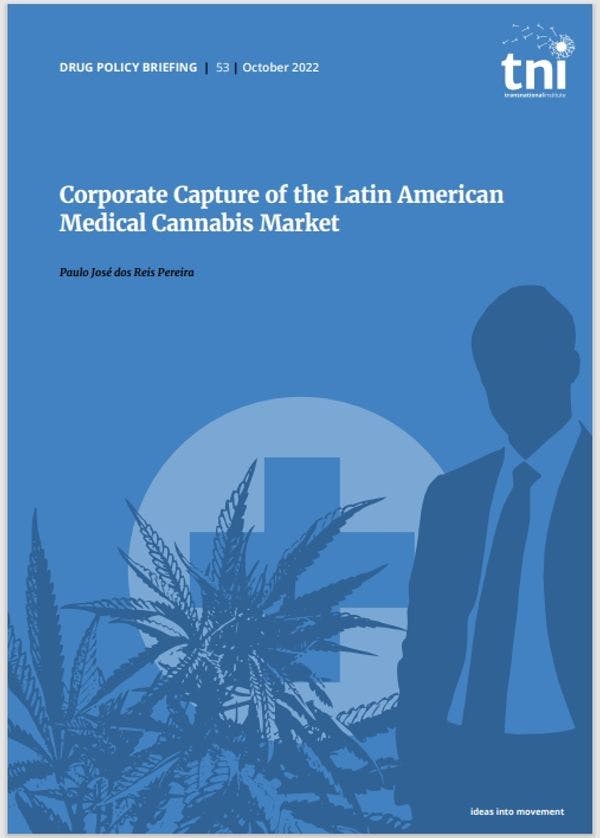Captura corporativa del mercado latinoamericano de cannabis medicinal
El TNI ilustra cómo significativas asimetrías de poder han permitido a las corporaciones definir sus condiciones de participación en los mercados emergentes de cannabis. Más información, en inglés, está disponible abajo.
In recent years, more than a dozen countries in Latin America and the Caribbean (LAC) have promoted some form of regulation of the medicinal use of cannabis, following the worldwide trend of relaxing the prohibition of the plant.
Such regulations are at different stages of development and have distinct characteristics, but they are similar in their pro-profit commercial orientation, which has stimulated the structuring of a regional production and consumption chain connected to the international dynamics of this new market. According to some reports, in 2020 the global medical cannabis market was worth US$9 billion and could reach US$49 billion by 2028, with an annual growth of 24%. The Latin American medicinal cannabis market is predicted to follow the same trajectory. It is estimated that this market represented US$1.2 billion in 2022 and is expected to reach US$3.75 billion in 2027, based on the same global annual growth rate.
A growing number of transnational corporations (TNCs), especially from Canada and the US, view this new Latin American regional market as a great business opportunity. Low taxes, unprotective and undemanding labour laws, low labour costs, a favourable climate for growing cannabis, affordable land, infrastructure and inputs for the cultivation and manufacture of cannabis products have all attracted this corporate interest. Several of these corporations have made direct investments in countries across the LAC region, establishing partnerships of different types with local companies in order to obtain commercial advantages for growing cannabis at low cost to manufacture their products either for export or for expanding their consumer market.
This new context of regulations on cannabis for medicinal purposes in Latin America could be a driving force for social justice. It could guarantee a therapeutic alternative for various medical conditions, reflecting scientific research and the positive experience of patients who have used cannabis-derived products for years, particularly CBD-rich oils. It could also be an opportunity to invest in repairing some of the social harms imposed by the long period of prohibition, which focused on the repression of vulnerable social groups involved in the production, commercialisation and consumption of cannabis, and led to incarceration, exclusion, deepening inequalities, corruption, and the like.
